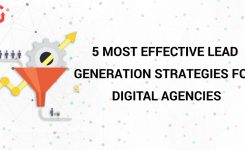Global Seo, Lead Generation, SEO, Uncategorized
What is GDPR and how does it impact Digital Marketing
The internet has left no aspect of life untouched, and the time has come where we can’t live a single day without the internet. While everything is turning digital and internet becoming an integral part of life, the dark clouds of security breach have started getting darker, bringing a headache to every internet user and digital marketer, beginning GDPR into the frame.
For every web user and consumer, personal data is the currency that opens the door to infinite service and operations. Similarly, for the marketers, information is the key to run a successful campaign leading the steps to the company’s growth. These data, if get hold on, helps companies to target the right audience for their business. Hence it’s the responsibility of the companies to hold the data entrusted to them by the user safely and responsibly. But if like all, you have also been active on the Internet in the past couple of months, then you most certainly have seen plenty of notices and advertisements explaining about the new privacy policy that all companies need to abide by.
The European Union (EU) took it on its shoulder to devise a new rule book regarding the privacy policy of the users so that no data goes misused. With the ubiquity of the internet, the nature of the personal data has changed remarkably, generating the need for the new Data Privacy Regulation.
Before we move to discuss how this new General Data Privacy Regulation (GDPR) has impacted the world of Digital Marketing, let’s first understand what GDPR is.
On May 25th, 2018, GDPR came into effect in 28 countries in Europe, but there exists no country that has been left unaffected by this new rule. The new regulation agreed by the European Union seeks to improve the transparency and the effectiveness of data protection activities. The new regulation affects how businesses acquire the consent of users and customers to submit their data that is stored within the CRM or other storage units of the company.
Whereas, from the users’ point of view, the status of lawfully processing the users’ data has become fairer and more transparent.
The primary motive behind the establishment of GDPR policy and the punishment associated with it is to build the trust between technology providers and the users.
Even though, the GDPR legislation around data privacy and protection was adopted in the month of April 2016 but it was officially be enforced two years later, i.e., from 25th May 2018, replacing the 1995 data protection directive, hence modernizing the data regulation by monitoring the ways in which businesses collect and use from the people stumbling on their website as well as the customers taking on their services in present era.
Even though it’s a common myth that GDPR affects only the European nations, but the truth stands high with the fact that any company that has a European customer will have to abide by the GDPR regulations. GDPR focuses on standardizing the EU data directives and provide the best usage of regulations on data handling as well as compliance.
With the motive to strengthen individual’s rights and for creating better transparency and control, GDPR was designed to ensure web users are aware of as well as have the right to control their data that is being shared with the companies.
So the next question to bug our mind is, what data gets affected with GDPR?
The answer is pretty simple, as defined by the EU legislation, any personal data that can be used to identify an individual, whether directly or indirectly, will come under the GDPR. Hence, whether it’s a simple email ID, an IP address, and available online photo, or any information connecting the data to the person, everything is bound by the GDPR regulations.
With the change in the rule, the next question arises, what are the main areas GDPR legislation will cover?
1. Right to access: According to GDPR legislation, any company holding any form of personal data is bound to provide a free copy of the individual’s data, if requested, so that the individual can look at what data has been stored and will be processed by the data holder. The user also holds the liberty to ask the company where and why their data is being used.
2. Right to erasure: The user holds the right to be forgotten, i.e., the user can request their personal data to be deleted, preventing the company and any related third parties from accessing or processing that users’ information.
3. Data portability: Under GDPR regulation, an individual is allowed to request access to their personal data, which can be later transferred to another data controller according to their wish and need
4. Data breach notification: If the data has been leaked or any form of the data breach has taken place, such as data hacked or lost, it is compulsory that both, the customer as well the data controller has to be informed with the time span of 72 hours.
5. Privacy by design: It is compulsory for the data holding companies to integrate data compliance and data protection from the starting phase of any new system being designed.
6. Data protection officers: It is compulsory that the company whose main activity includes data processing and monitoring to appoint a data protection officer, in place of notifying the local Data Protection Authorities about their activities.
After discussing GDPR in greater depth and realizing how crucial it is to abide by the GDPR legislation, let’s see how GDPR has impacted Digital Marketing.
One of the most impactful ways in which GDPR has affected Digital Marketing is that B2C companies will no longer have access to ‘implied consent’ or ‘soft opt-in’ for the data collection. According to GDPR legislation, it is crucial that the consent should be explicit, and the companies should be able to provide proof of explicit consent when demanded to present.
As well ‘implied consent’ means that marketers can send the emails to someone as long as the person wants, once the person chooses the option to opt-out of emails, the email should be stopped. Hence impacting email marketing greatly.
Hence, if your database contains any form of personal data, like email address, phone number, etc. its best to remain as docile as possible.
Marketing automation is the biggest boon for marketers, but with GDPR in the frame, it can turn into a nightmare if not set correctly. To avoid any penalties, you must have permission to send emails to all the names listed in your CRM database.
It works as miracles for Digital Marketers by placing an empty opt-in checkbox at the end of forms through which the users can choose to receive future marketing from the company. It also helps in improving the quality of the lead scoring as these people have genuinely expressed their interest in the company.
Endnote:
GDPR has brought a significant change in the world of marketing, and the attempt to grasp the whole concept in a single go can prove to be pretty daunting. This article presents just a simple framework explaining the GDPR. Hence if you are facing any difficulties with GDPR legislation, it would be best advised to get in touch with your legal team and avoid any hassle in the future.
RoboAuditor, the best white label SEO audit tool, also provides you with the option of making your audit form GDPR compliant in just one click.
RoboAuditor is an Embeddable SEO Audit tool that generates 4X more leads with the traffic you already have.








